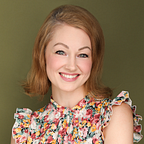If Your Spouse Is Autistic, You Might Be Autistic, Too
So your spouse or partner is autistic? You could be part of the large population of undiagnosed autistic individuals and not even know it.
If your spouse is autistic, chances are you are also on the spectrum or have another neurodiverse difference, like attention deficit hyperactivity disorder (ADHD), schizophrenia, bipolar disorder, social phobia, or generalized anxiety disorder.
According to a large Swedish study, which looked at over 707,000 individuals, those on the autism spectrum are 10–11 times more likely to choose romantic partners who are also autistic.
These findings were not found in control populations. Some control populations included individuals with Crohn’s disease, diabetes, and rheumatoid arthritis, and these individuals did not choose partners with the same or similar conditions.
You may not have been aware of the possibility of being autistic yourself, especially if your spouse was diagnosed at an early age, has more obvious or “stereotypical” autistic features that you do not see in yourself, or if you have developed the tendency to “mask” or “camouflage” your own autistic traits — something that many autistic people do unconsciously as a way to fit in and be…
